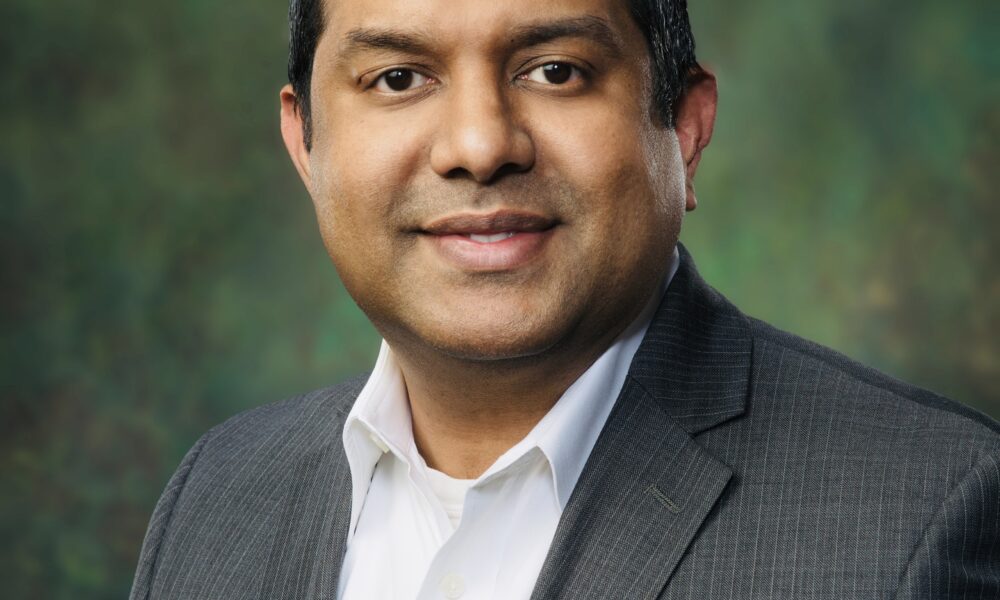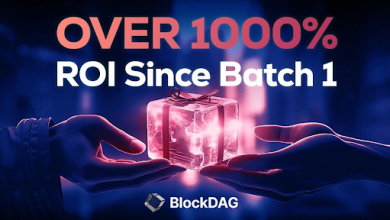Web Product Engineering Director and Magnitude Award-winner Thekkepat Harish Madhavan Celebrates 10 Years Leading Application Architecture and Design and Innovating Platform Business Models at Epsilon

Thekkepat Harish Madhavan, Director of Development, Production Management & Web Product Engineering at Epsilon in Chicago, Illinois (U.S.), recently celebrated 10 years with the company. Mr. Madhavan, known as Harish, is a winner of the company’s coveted Magnitude Award, which recognized his leadership in high-performance application architecture and design. Epsilon launched the annual Magnitude Award recognition program in 2020 to reward employees who stand out for their exceptional ability, hard work, achievements, and commitment to the company’s values.
Harish is concurrently responsible for Project Management and People Management, overseeing the timely delivery of cross-functional projects that leverage his multi-faceted expertise in diverse domains including marketing, human resources, insurance, finance, healthcare, and the automotive industry.

Thekkepat Harish Madhavan, Director of Development, Production Management & Web Product Engineering at Epsilon
Among his many significant accomplishments over the past decade, Harish architected and implemented a unique “Destination Platform” that has generated increased revenue for the company. This proprietary digital campaign marketing platform integrates multiple systems to streamline support, enabling more efficient process management for all campaigns across all channels. He has additionally enhanced revenue by implementing an array of technology initiatives and automating processes to decrease costs, as well as developing operational efficiencies in core teams across the organization.
In designing innovative digital solutions, Harish leverages his proficiency in managing end-to-end software development lifecycle (SDLC) methodology with cost-effective and time-efficient processes that minimize project risks and exceed customer expectations. He is recognized as a subject matter expert in every phase of the SDLC framework, including Analysis, Initiation, Development, Planning, Execution, Integration, Testing, Deployment, Monitoring, Controlling, and Closing, and has advanced expertise in developing multi-tier, web-based, portals-based, and object-oriented enterprise applications.
Harish says, “Traditional marketing strategies are becoming outdated, so organizations must adapt to stay relevant. A product-driven platform that meets your organization’s business goals is the key to success in the dynamic market. A well-designed platform offers a single engineering solution that serves the needs of multiple clients/consumers by keeping common functionalities in mind, while offering tailored user interface (UI) and user experience (UX) design to enhance targeted customer experiences and data security. This model also helps accelerate digital transformation by incorporating features that allow for scalability and flexible database design.”
In addition to offering scalable solutions, Harish believes that a good platform model offers many advantages as compared to traditional solutions. These benefits include reduced development time, which results in cost savings, less manual testing with reduced error rates, increasing efficiency with reusable solutions, streamlined integration with new technologies, and the ability to innovate by building new functionality faster. Furthermore, platforms that he has designed for various business sectors provide for personalized communications with customers and stakeholders, timely and relevant messaging, enhanced customer segmentation, and the ability to collect consistent, quality data, which drives evidence-based decision making.
“Businesses are discovering that the platform model optimizes innovation in the digital age,” says Harish. “Platform business models have revolutionized how companies conduct their business, and thus help the economy grow at a faster pace. The ability to create a marketplace where product producers and consumers can benefit is transformational for all. New revenue streams are generated by creating platforms and leveraging technologies that facilitate transactions, improve customer engagement, and create competitive advantage in their respective industries.”
Harish launched his software development career with a bachelor’s degree and strong academic foundation in Electronics Engineering, followed by 25 years of information technology (IT) professional development and industry experience in developing, architecting, and managing complex, always-on and secure internet and intranet applications, using sophisticated web technologies including Microsoft, .Net, and Java, among others. He is a Microsoft Certified Professional Developer (MCPD), Microsoft Certified Solution Developer (MCSD), Microsoft Certified Technology Specialist, and PMI Certified Project Management Professional (PMP), which has enabled him to provide proven methodologies for IT projects based on the PMP model.
Prior to joining Epsilon, Harish was a senior software engineer and project manager at a U.S.-based consulting firm. He previously developed and managed high-visibility and high-accessibility IT projects impacting the human resources field as an Associate Manager for Accenture LLC in Chicago and Mumbai, India. Earlier in his career, Harish gained valuable experience designing leading-edge solutions for Mumbai-based organizations in the banking, finance, and healthcare sectors. This included serving as Senior Executive Officer for a registered Financial Market Infrastructure entity, where he developed a financial application that supported credit borrowing and lending obligations (CBLO) transactions between banks in India and the Reserve Bank of India (RBI).
These diverse career experiences equipped Harish with meaningful business, leadership, and management skills that complement his significant IT expertise. In his current role, he focuses on enhancing improvements that create value for the company by spearheading change management processes, prioritizing issues, and recommending solutions for client-specific business needs. He works directly with client services teams to ensure that engineering requirements are defined and implemented for every project, and communicates between development and account teams, stakeholders, and leadership to deliver all projects as specified.
As a People and Project Manager, Harish is also responsible for overseeing, training, and evaluating the company’s engineering team direct report employees, external contractors, and offshore resources. He sets goals and defines expected outcomes for individuals and teams, conducts annual performance appraisals, provides yearly and ongoing education and feedback, and routinely holds post-launch review meetings to revisit project strengths and liabilities, and build out better processes for future projects.
On the project side, Harish develops project plans and budgets, builds staffing profiles, coordinates and monitors all project management activities, and communicates with business partners. He believes that this holistic, integrated approach to project and people management gives him a greater ability to deliver outstanding results, in terms of both technology solutions and motivating individual performance.
Harish says, “My advanced training certifications and work experience within SDLC and PMP frameworks have enabled me to develop a very systematic approach that has proven very effective for managing projects and teams. As an IT leader, it is also critical to have strong communication and people-facing skills, to better manage client-side issues and support their needs. I advise young engineers to pursue their people skills in parallel with their software skills, if they wish to keep up with emerging technologies and constantly evolving consumer behaviors, and advance to leadership positions in the IT field. Software engineering is not optimized in a vacuum. Individuals, teams, and companies must embrace change and evolve their strategies to stay competitive, create value for their customers, and generate new growth opportunities.”





